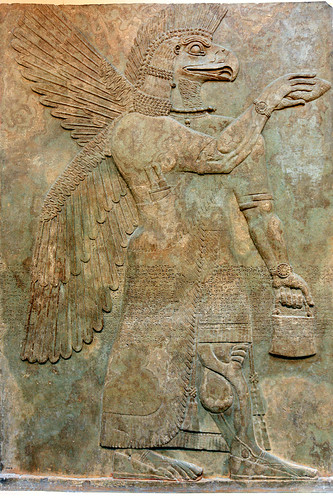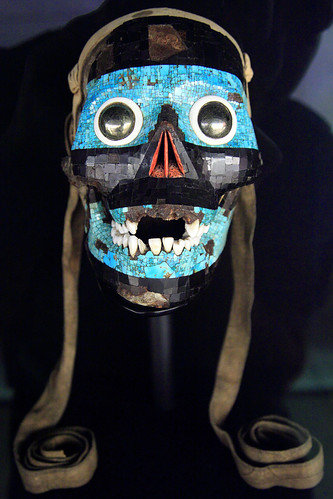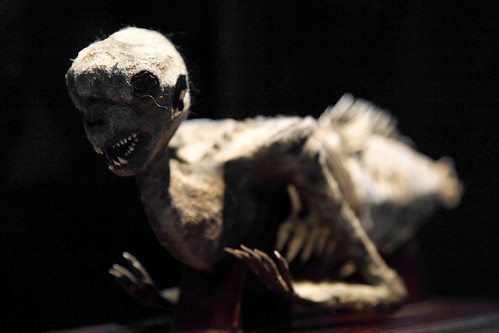

| Archive Blog Cast Forum RSS Books! Poll Results About Search Fan Art Podcast More Stuff Random |
|
Classic comic reruns every day
|
1 {photo of a giant sized bed}
1 Caption: Dream worlds
|
First (1) | Previous (3338) | Next (3340) || Latest Rerun (2750) |
Latest New (5380) First 5 | Previous 5 | Next 5 | Latest 5 Annotations theme: First | Previous | Next | Latest || First 5 | Previous 5 | Next 5 | Latest 5 This strip's permanent URL: http://www.irregularwebcomic.net/3339.html
Annotations off: turn on
Annotations on: turn off
|
 A message from the gods? |
What are dreams and why do we have them? I'm not qualified to answer these questions with any authority, but I can speculate and comment from my own experience. I'm not sure anyone really knows for sure why we dream yet. Scientific work I've read about the subject suggests that dreaming may be a side effect of the brain using the down time of sleep to sort through experiences of the day or the past few days, subconsciously deciding which events are worthy of remembering and fixing those away into long-term memory, while discarding less important memories. A sort of cognitive housecleaning, if you will. This seems to be a reasonable explanation and I guess it's probably somewhere in the right neurophysiological ballpark. Certainly my dreams are often clearly related to events I have experienced recently.
Dreams haven't always been considered in terms of the neurochemistry of the brain, however. Our ancestors had numerous beliefs about what dreams were and what they might potentially mean. Were they visions of other places or other times, of future events, perhaps? Were they portents to be heeded? Were they messages from the gods, or intrusions by evil sorcerers? Did they mean something?
Given the content of some dreams and how we experience them, it's easy to see why pre-scientific people might consider them any or all of these things. Dreams tend to feel real when we experience them, even if things impossible in the real world happen within them. One very common dream is of flying - simply floating in the air without any means of support.
I've discussed the "flying" dream with friends, and we seem to have similar experiences of it. For me, it often starts with myself walking down stairs. Then I'll start to skip steps and take longer and longer strides, clearing multiple steps with each stride. And then at some point I can extend my forward foot down towards the steps below, but as it glides over them it never actually needs to touch them. I can descend multiple floors of a staircase without ever touching the steps at all. And then I can drift away from the stairs entirely, and I am flying. This sequence of events is similar to how at least one of my friends experiences the flying dream.
Even though this unassisted flying experience is clearly impossible in reality, it feels very real within the dream. My friend has commented on this dream, saying that when it happens he can feel himself thinking, "Every time this has happened before I know I've just been dreaming, but this time, wow, it's happening for real!" This seems to be the common experience for most people: while within a dream they accept that what is happening is real and have no suspicion that it is merely a dream. Immediately upon awakening, however, that gets turned upside down and you very quickly realise you must have been dreaming.
 The flying dream. |
A question sometimes asked is if one dreams in colour or in black and white. I'm not sure I can answer this question myself. I am not confident enough in my recall of my dreams to say for sure if it is one or the other. In fact, I am not really confident that the dreams I experience qualify as visual in nature in any meaningful sense of the word. Certainly my eyes are closed and usually the room is dark when I am dreaming, so I'm not sure how I'm experiencing the dreaming state. It's certainly possible that my brain conjures up images that occur in the same parts of my neural circuitry as process real visual images, so it could appear to be visual in that sense. But on reflection, personally I feel that the experience of dreaming is more akin to the experience of remembering. I can certainly remember what it looks like to walk down a city street, but I don't actually see it in the visual processing area of my brain in the same way as I see light entering my eyes. Perhaps your impression of dreams is different. I guess some people have probably done psychophysical experiments on people to explore this issue, but I have not looked into it. (Pun unintended, but I'll take it.)
Another dream I have sometimes and which I have learnt is surprisingly common is one in which I have the feeling that all of my teeth are crumbling and falling out. I know a few friends who have had exactly the same sort of dream. I don't know what sort of processes in the subconscious brain could lead to this sort of imagery. It seems to be one of those bizarre things. I note that different dream interpretation sites and forums on the web say that dreaming about your teeth falling out means either:
 The teeth falling out dream. |
Still, some people like to interpret dreams, feeling that they signify either states of mind of the dreamer (plausible) or extra sensory perception or precognition of external events (not so plausible). It certainly seems plausible that your general state of mind can influence what you experience in your dreams, though how practically predictive that correlation might be is another question. Although you might be able to formulate a somewhat accurate picture of someone's anxiety or stress levels by asking them what they've been dreaming, I suspect it's more reliable to ask them directly if they are anxious or stressed about something.
As for extra sensory or precognitive visions, there is no compelling evidence to suggest dreams fulfil either of those. Occasionally people will dream about something that later turns out to be true, but given the huge number of people having dreams every night, it would be more surprising if none of them ever turned out to be true. Reported cases of precognitive dreams are subject to confirmation bias which can make them feel much more significant than they really are.
But even if we discount any paranormal powers, dreams can still certainly feel weird. Dreaming is a state of consciousness unlike the one we experience in our waking lives, and can sometimes feel oddly different. Different enough for it to be thought of as a different place or dimension, a real place which perhaps we visit fleetingly. Authors of fiction and creators of myths have taken this idea and produced many examples of tales where dreams form a link or access point to some hidden world.
One highly developed example is the Dreamlands of author H.P. Lovecraft. He envisioned an alternate reality with its own geography and inhabitants, which people could visit through their dreams.
The idea that there is a common "dream world" brings up the possibility that other people could be exploring it as well, and you could potentially meet fellow humans in your dreams, and both of you may remember the meeting when you awake. In a fictional universe, this could be a means for psychic communication. Taking it a step further, you can imagine a setting where dreams interact with reality on a deeper level. What if you could navigate somewhere in your dreams, and when you wake up, you are physically there, rather than where you fell asleep?
 You don't want to meet this in a nightmare. |
Nightmares are certainly a real thing, and can cause sleepers to wake in terror, only to discover they are safe in their own beds. In my experience, nightmares were more common as a child and have grown much less frequent as I have grown older, perhaps reflecting my general levels of fear of the unknown as I matured. The childhood nightmare I remember most vividly is waking up to see the face of a snarling tiger at my bedroom window, only to then wake up for real, screaming in terror. (This was in the days before Calvin and Hobbes, when tigers were vicious and full of teeth, not cute and fuzzy.)
Related to nightmares is the phenomenon of sleep paralysis. This is a terrifying sounding event in which a person thinks they are awake (or perhaps really is awake), but their muscles are still in the deactivated sleep state, so they cannot move. This is accompanied by an eerie sensation that someone or something is in the room with them. There is a feeling of pressure on the chest, and often the sleeper experiences the sensation that this is caused by an entity sitting on them. Quite naturally, this state of affairs can lead to deep panic.
Sleep paralysis was only recognised for what it was, a neurophysiological phenomenon, fairly recently. But it occurred to people throughout history, and so naturally acquired other explanations. Many myths considered the sensations to be caused by demonic or spiritual entities, actually sitting on people's chests as they slept. This is likely the source of legends about mares, alps, hags, succubi, incubi, and other such terrifying mythical beings which visit sleepers in the night. More recent instances of people experiencing sleep paralysis, fed by the images of modern media, may lead to people thinking they are the subject of alien abductions.
Dreams are interesting, both in the real world of neuroscience and consciousness, and in the half-reality of literature, myth, and imagination. If you want a hook for a work of fiction or a gaming adventure, you could do worse than consider your dreams.
|
LEGO® is a registered trademark of the LEGO Group of companies,
which does not sponsor, authorise, or endorse this site. This material is presented in accordance with the LEGO® Fair Play Guidelines. |